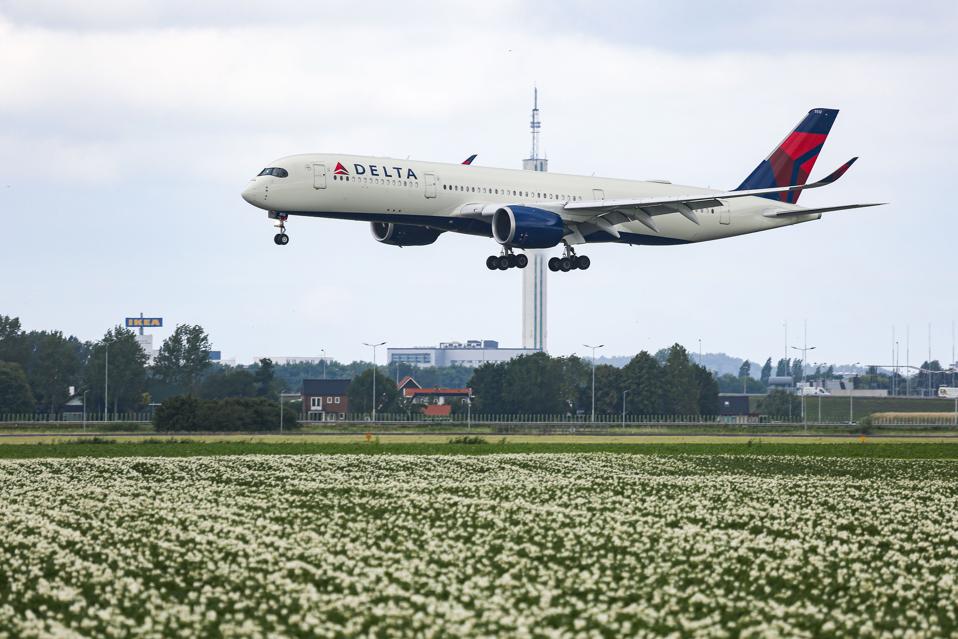Delta Air Lines will take delivery of a new Airbus A350 aircraft this week and avoid tariff costs by flying it from the factory in Toulouse to Tokyo, Japan, instead of the U.S.
The new aircraft, tail number N528DN, is scheduled to operate flight DAL 9936 on Wednesday, departing Toulouse at 11:10 am CEST and arriving in Tokyo on Thursday, 1 May, at 9:50 am.
The aircraft’s next destination is still unknown. However, it may remain in service internationally without landing in the U.S. until it no longer qualifies as a new aircraft that would incur import tariffs. Delta used this international aircraft launch strategy to avoid tariffs imposed during President Trump’s first term in office.
During the airline’s recent earnings call Delta Air Lines CEO Ed Bastian said addressed the cost impacts of tariffs on the airline’s fleet, saying, “We are working very closely with Airbus, which is the only aircraft manufacturer we’ve got deliveries coming from for the balance of this year. They’ve been a great partner, they are a great partner, and we’ll do our very best to minimize tariffs, but we are very clear that we won’t be paying tariffs on any aircraft deliveries we take. These – the times are pretty uncertain, and if you start to put a 20% incremental cost on top of an aircraft, it gets very difficult to make that math work. So, we’ve been clear with Airbus on that, and we’ll work through and see what happens from that.”
The airline currently operates a fleet of 36 Airbus A350-900s, with 15 more on order. It also has an order for 20 Airbus A350-1000s scheduled for delivery next year with options for 20 more. The list price for Airbus A350-900 aircraft is $308 million and A350-1000s list for $355 million.
Tariffs Hit An Aviation Industry Still In Recovery From COVID
Trump’s tariffs impact U.S. airlines just as they were recovering from the air travel decline during the pandemic. Delta’s President, Glenn William Haustein, stated during the earnings call that the airline “had seen a significant drop-off in bookings” from Canada as a result of the trade war and a “mixed bag” in Mexico. “We’re navigating through those waters, and I think we’ll be looking at Canada and Mexico as places that we probably want to reduce our capacity levels as we move forward,” he said.
Additionally, Ed Bastian explained, that tariffs have affected the airline’s corporate travel customers.
“There’s about a 10-point velocity rate change from where we were at the beginning of the year to where we are now, which is flat,” Bastian said during the call. “And I think a lot of companies are trying to figure out what the future is. If we continue on in this elongated sense of uncertainty, no question, you’ll see continued reductions in corporate travel. But I think it’s premature to project too far ahead at this time.”
Reuters has reported that the U.S. aviation industry is lobbying the Trump administration to restore the tariff-free regime under the 1979 Civil Aircraft Agreement.
“Our government affairs team is hard at work on it to make the case as to why there should be a carve-out,” American Airlines CFO Devon May told Reuters. “It’s really difficult for us to wrap our heads around paying tariffs on those airplanes,” May added. “It just doesn’t make economic sense.”

